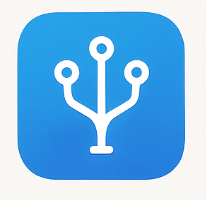The job market in 2025 is more competitive than ever, with rapidly changing skills requirements and evolving employer expectations. But the good news is that the same technology reshaping industries is also transforming how you can approach your job search. By leveraging artificial intelligence (AI), you can significantly cut down on the time spent applying, increase your visibility to employers, and improve your chances of landing your dream job. This guide will walk you through the essential AI tools and strategies to help you get hired faster in 2025.
- Understanding the Modern Job Market
The days of simply submitting a resume and waiting for a call are long gone. Today’s job market demands a more strategic approach. With the rise of AI, companies have transformed their hiring processes, making it essential for job seekers to adapt accordingly. Understanding this landscape is crucial to standing out in a crowded field.
1.1 The Role of AI in the Job Market
AI is not just a trend – it’s a critical part of modern recruitment. From automating resume screening to personalized job matching, AI is reshaping how candidates find jobs. According to recent studies, 76% of companies plan to integrate AI technology in their hiring processes by the end of 2025, making it essential for job seekers to stay ahead of this curve.
1.2 Challenges Faced by Job Seekers in 2025
While AI tools offer significant advantages, they also introduce new challenges. Candidates now need to optimize their resumes for both human and AI review, navigate complex job matching algorithms, and prepare for AI-driven interviews. Understanding these challenges is the first step to overcoming them and making the most of AI technology.
- Using AI to Optimize Your Job Search
2.1 AI-Driven Job Research
AI tools can significantly streamline your job search by analyzing vast amounts of job listings and matching them to your skills, experience, and preferences. This approach not only saves time but also uncovers hidden opportunities you might otherwise miss. For example, platforms like Robin and Phenom use AI algorithms to match you with jobs based on your resume, LinkedIn profile, and stated career goals.
2.2 Optimizing Your Resume with AI
The resume remains the cornerstone of any job search, but today’s resumes must be optimized for both human recruiters and AI systems like Applicant Tracking Systems (ATS). AI tools like Jobscan and Resumake can help you identify the right keywords, format your resume for maximum impact, and highlight your most relevant skills. This approach can significantly increase your chances of passing the first screening stage.
2.3 Personalized Job Matching
AI algorithms are not just about keyword matching; they can analyze your skills, experiences, and even cultural fit to find roles that truly align with your career goals. Platforms like LinkedIn and ZipRecruiter have integrated intelligent job matching systems that continuously learn from your profile and job applications to improve their recommendations over time.
- Mastering AI-Driven Interview Preparation
3.1 The Rise of AI Interview Tools
Preparing for interviews is more than just practicing common questions. AI-driven platforms like Interviewing.com, HireVue, and Yoodli offer realistic mock interviews, providing personalized feedback on everything from word choice to body language. These tools can be game-changers, especially if you’re applying for roles at companies that use AI to evaluate candidates.
3.2 Using AI for Realistic Practice
Many AI tools provide real-time feedback on your responses, helping you refine your answers for clarity, confidence, and impact. This level of preparation can significantly boost your interview performance and reduce anxiety by simulating real-world scenarios.
3.3 Going Beyond the Basics
AI can also help you refine your communication style and understand the non-verbal cues that are critical in interviews. Some platforms even analyze your tone and body language to provide deeper insights into how you come across to potential employers.
- Beyond Job Applications – Building a Robust Online Presence
4.1 Optimizing Your Digital Footprint
In 2025, your online presence is as important as your resume. Platforms like LinkedIn now use AI to analyze your profile and suggest improvements to increase your visibility to recruiters. This means your headline, summary, and experience sections need to be carefully crafted to reflect your skills and career goals.
4.2 Leveraging Social Proof
AI tools can also help you identify the right connections and groups to join, boosting your credibility and expanding your professional network. Tools like Phenom AI can track your online interactions and suggest personalized engagement strategies to improve your online brand.
- Staying Ahead with Continuous Learning and AI Skills
5.1 Embracing AI for Ongoing Skill Development
With the rapid pace of technological change, continuous learning is essential. AI can help you identify the skills in demand and connect you with relevant courses, certifications, and training programs. Platforms like LinkedIn Learning and Coursera use AI to recommend personalized learning paths based on your career goals and current skill set.
5.2 Building a Growth Mindset
AI tools are powerful, but they work best when combined with a proactive, growth-oriented mindset. Staying curious, adapting to new technologies, and regularly updating your skills can give you a significant advantage in the modern job market.
- The Future of Job Searching
AI is not just a tool for employers; it’s a powerful resource for job seekers looking to stand out in a crowded market. By leveraging AI at every stage of your job search – from resume optimization to interview preparation – you can significantly improve your chances of landing your dream job in 2025.
Ready to supercharge your job search with AI? Start exploring the tools and strategies in this guide and take control of your career today.


Laisser un commentaire